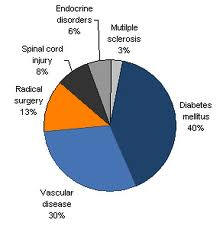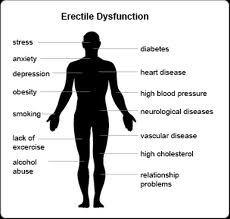Male help.
CIDP treatment CIDPUSA Foundation
MALE DYSFUNCTION
Erectile dysfunction takes more than Erectile dysfunction takes more than a physical toll. The emotional impact on a man and his partner can prove just as difficult. It is common for men with ED to feel anger, frustration, sadness, or a lack of confidence. However, the condition can be treated.

The first step in addressing your concerns about ED is to be honest with yourself, your partner, and your doctor. Once you have brought ED out into the open, coping with it as you go through treatment will be easier and less stressful. Communication is essential to successful diagnosis and treatment as well as to helping your partner understand your feelings.
While you are being treated for ED, it is important to be patient with your progress. A treatment that works for one person may not work for another. It is also important to know that the treatment you choose may not work the first time or may not work every time. For some couples, sex therapy may help partners support each other and maintain intimacy while coping with ED. It may also help to learn more about others' experiences with ED. Contact your doctor about support groups in your area.

Talking to your partnerf you are diagnosed with erectile dysfunction, feelings of anger and resentment that you may naturally experience may harm your relationship with your partner unless you find a way to communicate them. While these emotions are understandable, it is important to take into account that your partner is also affected by your ED. Moreover, feeling comfortable talking about your relationship
treatment. A man who has difficulty sharing and resolving his feelings about ED may make the problem worse.
The best way to communicate with your partner is to try to get past the initial embarrassment and awkwardness and confront the problem head-on. If you have difficulty discussing the topic, counseling may help.
For some couples, sex therapy may help partners support each other and maintain intimacy while coping with ED.
A partner of someone experiencing ED can help by discussing feelings honestly while showing care and concern. Rather than assigning blame, it can be much more effective to take the approach that dealing with the problem will be a team effort. Meantime, you can together explore alternative techniques to find sexual pleasure so that there's no pressure to "perform." Focus on ways to solve ED, rather than how ED affects your relationship. Give your partner positive feedback so that he's willing to discuss his feelings. Remind him that there are many options for successful treatment. If your partner does not succeed initially, encourage him to continue to visit the doctor and explore other options.
Lifestyle changes
Men can often improve their erectile function by making changes in their daily habits. Further, these steps help men lead healthier lives overall.
Men who maintain a healthy weight, who exercise regularly, and who reduce stress and anxiety lower their risk of erectile dysfunction. Men with high cholesterol may damage the linings of blood vessels throughout the body, including those in the penis. Cholesterol can also harden, narrow, or block these arteries, leading to erectile dysfunction. You can lower your cholesterol through diet, exercise, and medication.
Nonsmokers have a lower risk of atherosclerosis (hardening of the arteries), and men who quit smoking may partly or fully restore erectile function. Excess drinking can inhibit erectile functioning and can affect production of the hormone testosterone, affecting sex drive and erections. More than 80 percent of chronic alcoholics have chronic ED. Illegal drugs can also cause impotence. Men with diabetes risk damaging the arteries and nerve endings serving the penis if their diabetes is out of control. Diet, exercise, and medical control for diabetes can all help men avoid risk of diabetes-related ED.
Nonsurgical treatments
The first step in treating ED is to find the underlying cause; the doctor can then decide what sort of treatment is likely to work. If the problem continues, a number of nonsurgical options can help a man gain and maintain erections.
Oral medications
Sildenafil (Viagra) was the first oral medicine approved to treat erectile dysfunction. It works by increasing the flow of blood to the penis so that a man can get an erection when he is sexually stimulated. Though the directions advise men to take the drug one hour before sexual activity, research indicates that the drug can sometimes work when taken from 30 minutes to eight hours before intercourse.
Take Viagra exactly as directed. Do not increase or decrease the dosage of Viagra or take the drug more often than prescribed by your doctor. Do not take Viagra more than once a day. Men who are on nitrate medications such as nitroglycerine should not take Viagra, since the combination of Viagra and nitrates can cause blood pressure to dip too low (hypotension). The most common side effects of Viagra are dyspepsia (indigestion), nasal congestion, flushing, headaches, and transient visual disturbance.
continued to next page alternative treatents of Erectile dysfucntion😏